Premium Only Content
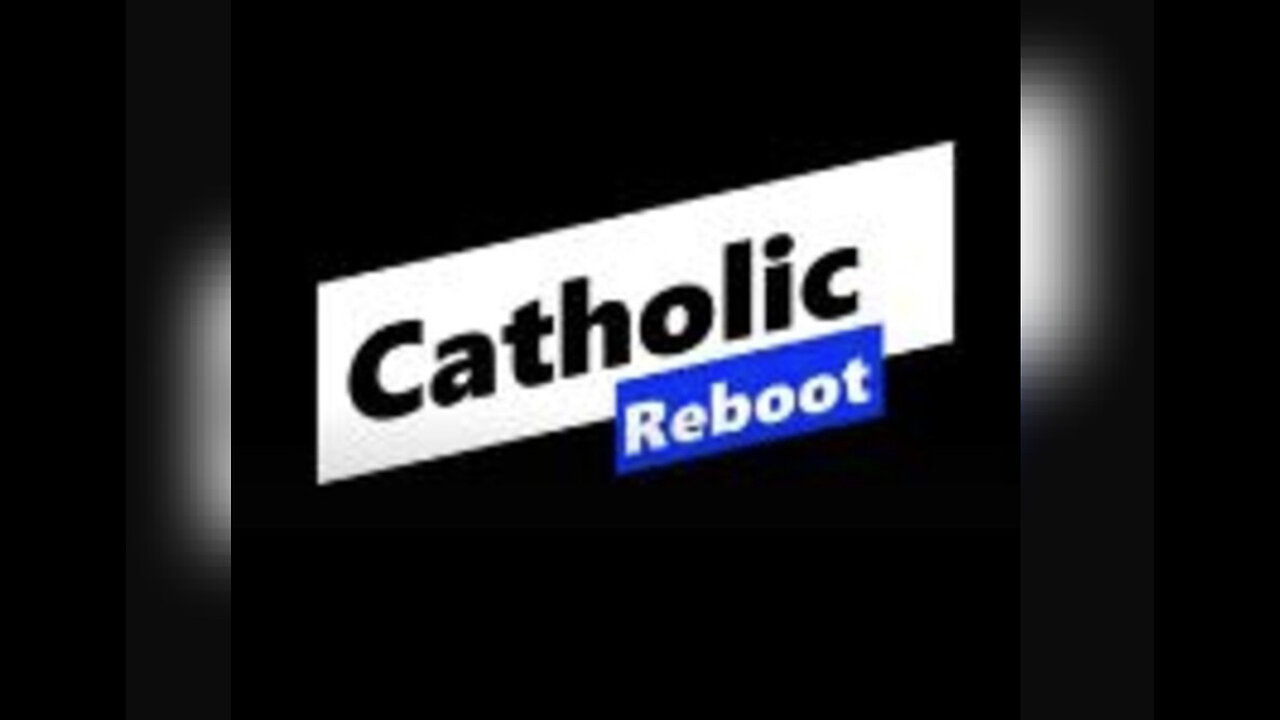
Episode 3124: The Great Exodus: Why Pope Leo XIV Cannot Ignore the Remnant - Morning Episode
Nightly Zoom Coordinates for Rosary:
Meeting ID: 865 8978 0399
Passcode: Wjjv4960!
Speak Lord for your Servant is Listening
Book Recommendation of the Day
“St. Gregory Barbarigo: Cardinal of the Roman Church"
• Author: Michael J. Curley
• Description: This biography provides a thorough overview of Barbarigo’s life, emphasizing his role in implementing the reforms of the Council of Trent, his influence in Padua and Bergamo, and his deep intellectual and spiritual commitment to the Church.
• Availability: May be found in specialized Catholic libraries, through interlibrary loan, or used bookstores.
“The Great Exodus: How Vatican II Opened the Floodgates and Why Pope Leo XIV Cannot Ignore the Remnant”
In the Fourth Joyful Mystery, we reflect on Simeon who waited patiently for the consolation of Israel. We too are waiting for the restoration of a wounded Church. But unlike Simeon, our wait is amidst rupture and loss.
The Church is hemorrhaging souls. Millions have walked away not because they hate the Faith, but because what they were given was not the true Faith. It was novelty, ambiguity, and compromise.
Let’s explore what led to this crisis and why the remnant faithful may hold the key to restoration.
The Numbers Don’t Lie - The Collapse of Catholic Retention
In the United States:
• Only 57% of those raised Catholic still identify as Catholic.
• 25% have become unaffiliated atheist, agnostic, or indifferent “nones.”
• Another 14% have joined Protestant communities.
That means 43% nearly half have left the Faith of their baptism.
Even more sobering:
• For every 1 person who becomes Catholic, over 8 leave.
• Only 1.5% of American adults today are Catholic converts.
The Church, once a missionary force, is now bleeding members faster than she can evangelize.
Why Are They Leaving?
Pew Research tells us:
• Two-thirds of the unaffiliated say they simply no longer believe.
• Others cite disagreement on Church teaching particularly on abortion, sexuality, and contraception.
• Still more feel Catholicism has become “irrelevant.”
But let’s be honest:
They aren’t rejecting the Catholic Faith.
They’re rejecting a diluted, man-made version that failed to convert their hearts.
They weren’t properly catechized they were never taught the Faith that built saints and martyrs.
Vatican II: The Opening to the World…and the Closing of the Faith
The Second Vatican Council, though pastoral in intent, introduced ambiguity where clarity once reigned.
• “The Church of Christ subsists in the Catholic Church” a theological fog inviting relativism.
• Ecumenism became mutual flattery, not conversion.
• The Social Kingship of Christ was traded for interreligious dialogue.
The Faith became optional. And when truth becomes optional, faith becomes irrelevant.
The Liturgical Earthquake
In 1969, the Mass of the Ages was replaced with the Novus Ordo Missae crafted under Archbishop Bugnini with Protestant advisors.
The fallout:
• Sacred silence was lost.
• Gregorian chant was replaced by guitars.
• Reverence gave way to entertainment.
Today, only 30% of Catholics believe in the Real Presence.
Among Traditional Latin Mass attendees? Over 95%.
That’s not coincidence it’s causality.
From Catechesis to Confusion
Gone was the Baltimore Catechism. In came “faith sharing,” feelings, and ambiguity.
• Sin became therapy.
• Confession became optional.
• Doctrine became dialogue.
A generation was raised without clear moral or theological foundations. The result? A vacuum filled by secularism and despair.
Ecumenism Without Evangelization
• 1986: Catholic leaders pray alongside pagans in Assisi.
• 2019: The Document on Human Fraternity claims God wills the diversity of religions.
If all paths are equal, why remain Catholic? Why sacrifice for truth when compromise is applauded?
One Light Remains: The Traditional Remnant
Yet amid the wreckage, one light refuses to go out:
• FSSP, ICKSP, and SSPX chapels are growing.
• Families are large, vocations strong, reverence restored.
• The Faith is not being remembered it is being lived.
The remnant isn’t about nostalgia it’s about fidelity. And that fidelity is drawing souls back to Christ.
Pope Leo XIV: The Crisis and the Crossroads
Leo XIV inherits a Church torn by division:
• Synodality has replaced clarity.
• Sacrilege is tolerated.
• Tradition is treated as an enemy.
His predecessor, Pope Francis, extinguished nearly every flicker of tradition.
But the remnant endures. And Leo XIV must now choose:
• Continue the road to ruin?
• Or return to the only part of the Church still alive?
Benedict XVI vs. Leo XIV: Two Formations, Two Futures
Benedict XVI:
• Ordained in 1951.
• Trained in classical theology.
• Deeply rooted in the old Mass and issued Summorum Pontificum.
Leo XIV:
• Formed in the 1970s.
• Trained in post-conciliar theology.
• Liturgically and doctrinally formed in rupture, not continuity.
For him, Tradition isn’t just unfamiliar it’s foreign.
To embrace it will require conversion, not just policy.
Only the Holy Ghost Can Turn the Tide
Modernism is entrenched. Seminaries are empty. Institutions are corrupt. But the Church is divine.
If Pope Leo XIV is to restore her, it will require:
• Enlightenment to see the crisis.
• Zeal to love Christ above compromise.
• Courage to suffer for the Truth.
This is a Pentecost moment and only the Holy Ghost can make it happen.
Christ-Centered vs. Man-Centered
The Traditional Church is:
• Oriented ad Deum toward God.
• Focused on sacrifice, sanctity, and silence.
• Built around the Eucharist and the Cross.
The Modern Church is:
• Oriented ad populum toward man.
• Filled with noise, novelty, and contradiction.
• Built on slogans, synods, and sentiment.
One leads to heaven. The other leads to hemorrhage.
What Must We Do?
We are the remnant. We must act:
• Pray and fast for Pope Leo’s conversion.
• Defend and support the Traditional Latin Mass.
• Teach the Catechism of Trent to our children.
• Build strong, faithful Catholic communities.
The time will come when Peter turns and strengthens the brethren (Luke 22:32). And when he does, the Church will rise again.
Epistle Reflection (2 Corinthians 8:1–9)
In their poverty, the Macedonian churches overflowed in generosity. They gave themselves first to the Lord and then to the Church.
We too must offer all to Christ. Not with reluctance, but with joyful sacrifice.
Gospel Reflection (Matthew 5:43–48)
“Love your enemies.”
Christ commands us not to fight as the world fights but with mercy, prayer, and charity. We must uphold truth but never lose love.
Saint of the Day – St. Gregory Barbarigo
A 17th-century bishop and cardinal, he reformed clergy, founded seminaries, and served the poor. He governed with simplicity and strength uniting truth with charity.
He shows us how to rebuild: not with power, but with fidelity.
Key Takeaways
Lesson Application
Generosity rooted in poverty pleases God Sacrifice time, talent, and treasure even in hardship
Perfection through mercy Love enemies, pray for detractors, respond with grace
Church is rebuilt from the ground up Support faithful priests, families, and parishes living Tradition
Conclusionary Prayer
O Sweet Jesus,
You who became poor so that we might be rich in grace,
Grant us the courage to give, the strength to persevere, and the charity to love even our enemies.
Through the intercession of St. Gregory Barbarigo, may we rebuild Your Church with the hidden strength of humble fidelity.
In the Name of the Father, and of the Son, and of the Holy Ghost. Amen.
Let us not lose heart. The floodgates opened at Vatican II. But from the debris, with God’s grace, a purified Church can rise.
This has been Catholic Reboot. Stand firm. Stay faithful. And remember: the remnant is not what's left over it's what's holding fast.
-
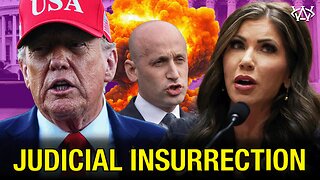 LIVE
LIVE
Robert Gouveia
55 minutes agoTrump Appeals Judicial Takeover!! Churches TARGETED in Info War!
888 watching -
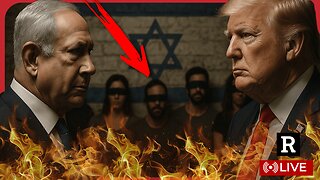 1:38:33
1:38:33
Redacted News
2 hours agoTrump Slams Neyanyahu "Take the Deal, Stop being so F*cking Negative", Hamas responds | Redacted
79.5K98 -
 LIVE
LIVE
Kim Iversen
1 hour agoWho Let This Happen??: Israel Now Controls Tik Tok, CBS News, HBO, MTV and More
1,050 watching -
 LIVE
LIVE
Dr Disrespect
6 hours ago🔴LIVE - DR DISRESPECT - BLACK OPS 7 - GIVE ME BACK MY NUKE
1,183 watching -
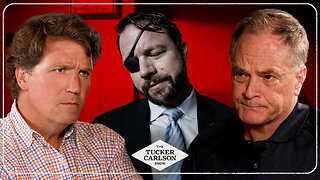 1:30:22
1:30:22
Tucker Carlson
5 hours agoEverything You Should Know About Dan Crenshaw, How He Got Rich & Why He’s So in Love With Ukraine
31.4K99 -
 LIVE
LIVE
Wayne Allyn Root | WAR Zone
6 hours agoWatch LIVE: The War Zone Podcast with Wayne Allyn Root
26 watching -
 LIVE
LIVE
Total Horse Channel
3 days agoGypsy Georgia National Fair Show
42 watching -
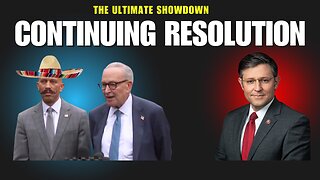 LIVE
LIVE
The Amber May Show
1 hour agoThe Shocking Truth Inside the Democrats’ Spending Bill
71 watching -
 LIVE
LIVE
Vedic compatability astrology
1 hour ago"Unlocking Your Purpose: It's About Creation, Not Just Survival!"
12 watching -
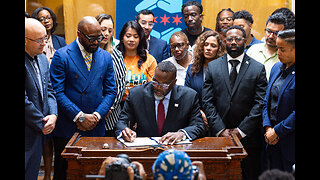 1:11:41
1:11:41
vivafrei
4 hours agoLawless in Chicago! Mayor Signs EO Bannin ICE! Press Sec Drops Truth Bomb on Shutdown! & MORE!
71K89
